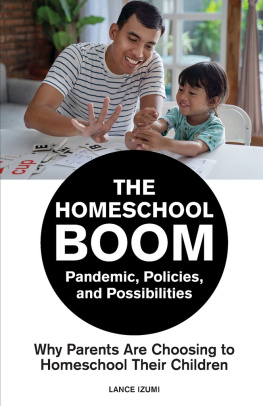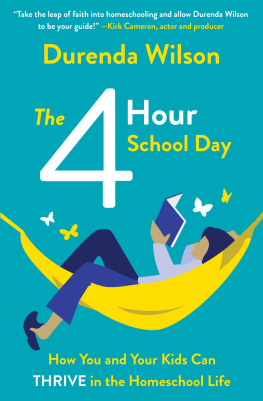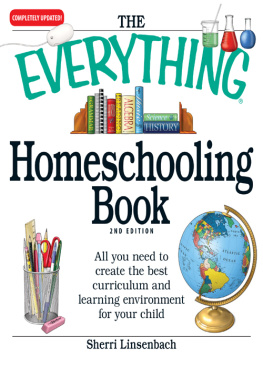Michael Q. McShane is director of national research at EdChoice. He is editor of New and Better Schools (Rowman & Littlefield, 2015); author of Education and Opportunity (2014); and coeditor of BushObama School Reform: Lessons Learned (2018), No Longer Forgotten: The Triumphs and Struggles of Rural Education in America (Rowman & Littlefield, 2018), Failure Up Close: What Happens, Why It Happens, and What We Can Learn from It (Rowman & Littlefield, 2018), Educational Entrepreneurship Today (2016), Teacher Quality 2.0 (2014), and Common Core Meets Education Reform (2013). McShane is an opinion contributor to Forbes, and his analyses and commentary have been published widely in the media, including in USA Today, the Washington Post, and the Wall Street Journal. He has also been featured in such education-specific outlets as Teachers College Record, Education Week, Phi Delta Kappan, and Education Next. In addition to authoring numerous white papers, McShane has had academic work published in Education Finance and Policy, The Handbook of Education Politics and Policy, and the Journal of School Choice. A former high school teacher, he earned a Ph.D. in education policy from the University of Arkansas, a M.Ed. from the University of Notre Dame, and a B.A. in English from St. Louis University. He is also an adjunct fellow in education policy studies at the American Enterprise Institute and a senior fellow at the Show-Me Institute.
W riting a book like this is a leap of faith. To tell the stories of hybrid homeschoolers, an author has to hope that they will actually talk to him. I am eternally indebted to the people who took time out of their busy days and hectic lives to talk to me about their experiences.
Particularly, I would like to thank Josh and Rebecca Good, Ben Harris, Jeremiah Behling, Martha Herndon, Allison Morgan, Jim Falcetti, and Betsy Springer for not only agreeing to speak to me, but also connecting me to the teachers and families that they knew. During a global pandemic, they went out of their way to set up video calls with groups, make introductions, and follow up to make sure that folks would talk to me.
I have developed the ideas expressed in this book during the course of more than two years in my Forbes column; at my employer EdChoices blog; in briefs written for the American Enterprise Institute; and during podcasts, radio interviews, and panel conversations. Id like to thank all of those who gave me feedback in those forums. They helped refine and improve my thinking on the topic.
I owe a particular debt of gratitude to Kathleen Carroll, who meticulously edited the manuscript, offering an unfathomable number of changes and improvements. If you happen upon something particularly insightful, it is probably because of a recommendation of hers. If you find something dumb, that is all me.
Id also like to thank the great folks at Roman & Littlefield, including Tom Koerner and Carlie Wall, who have been wonderful collaborators on numerous projects, and hopefully more in the future.
Id also like to recognize and thank my friends and colleagues at Ed-Choice, particularly Paul DiPerna and Robert Enlow, who have been incredibly supportive throughout this entire process and jumped in at a late stage to read a draft of the manuscript. They kept a couple of clangors from getting to print. Id also like to thank Jacob Vinson for his graphic design help.
Finally, I will never be able to adequately thank my family for their love and support. This includes my parents, to whom this book is dedicated, who always made sure to ask how my book was going and were willing to listen to me prattle on about it, and my dear wife and beloved daughter, who make my life worth living.
I f youve made it this far through the book and think hybrid homeschooling might be something youd like to try, read on. This short appendix covers the key questions that potential hybrid homeschoolers should ask themselves and resources that are available to help.
Hybrid homeschooling is not easy, and it is not for the faint of heart. By answering these questions honestly and wrestling with their full implications, parents and teachers can set themselves up for success.
KEY QUESTIONS FOR PARENTS
Am I ready for the responsibility that comes with taking a larger stake in my childs education?
If you choose to hybrid homeschool, anywhere from one to four days of your childs school week will happen under your supervision. Are you ready to take over scheduling? Can you handle classroom managementi.e., keeping your child on task or, if you have multiple children, ensuring they are working instead of distracting one another? Are you prepared to lead instruction? You will need to establish a space for your children to learn and plan out days, weeks, and months of instruction. It is a substantial commitment. Are you ready?
Do I want to have a closer relationship with my childs teacher?
If youre used to a classroom newsletter once a month and a parentteacher conference once or twice a year, strap in for a major change. Hybrid homeschooling teachers and parents have a constant line of communication, frequently calling or texting, chatting at pickup and drop-off, and exchanging lots of e-mails. In addition, parents often rely on teachers to demystify complex topics before they attempt to teach them at home. Are you ready to be that vulnerable? Can you admit what you do not know and need help with? Can you collaborate well? Are you willing to work with another adult in designing your childs education?
Do I want to blur the line between parent and teacher?
Parents frequently underestimate the shift in their relationships with their children when they step into a teaching role at home. School rules tend to be less flexible than family dynamics, and that can be a point of pressure for some homeschooling parents. If a child doesnt eat his dinner or says something mean to a sibling, a parent may choose to respond with a variety of repercussions and consequences based on a host of factors. But if a student doesnt do his math work, the consequences in terms of grading are clear, and the job of the teaching parent is to impose them. Its a lot of pressure, and some parents would prefer to leave that to educators outside of the home. When homeschooling works well, it fosters an incredibly close relationship between parent and child. They learn and grow together in ways that are not possible when a child is enrolled in a traditional school. But when it doesnt work, it can sour both home and school life.
Do I have the financial flexibility to give up my job or to work part-time?
Depending on the model, parents will need to commit several days each week to focused teaching work. That requires either a flexible work schedule or a home budget that can accommodate one parent not working. It is important to look at both sides of the ledger, since hybrid homeschools are relatively inexpensive, which might decrease the need for additional income. But a full accounting is necessary before undertaking hybrid homeschooling.
Am I ready to commit to a school community that might ask more of me than other schools?
Hybrid homeschooling communities tend to be tight-knit entities. Many schools expect parents to volunteer and be part of the broader school community. This can be a powerful and positive experience, but it is a commitment. Are you an introvert? Do you want to be left alone? Entering into a close community might not be for you. But you never know how you might benefit from getting drawn into a group.








